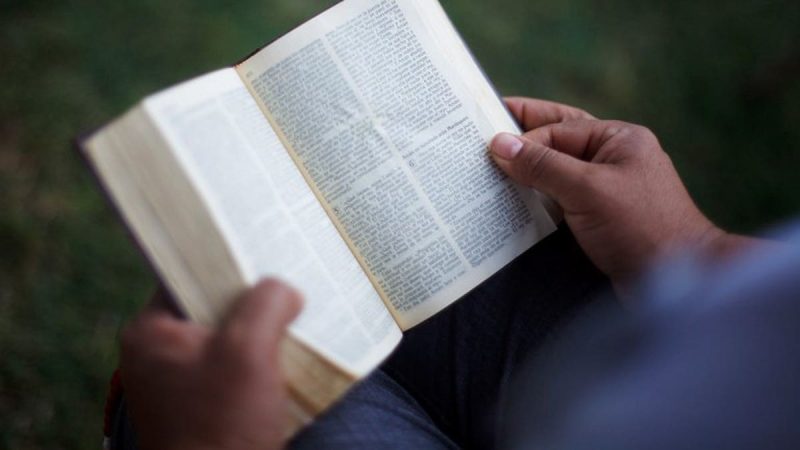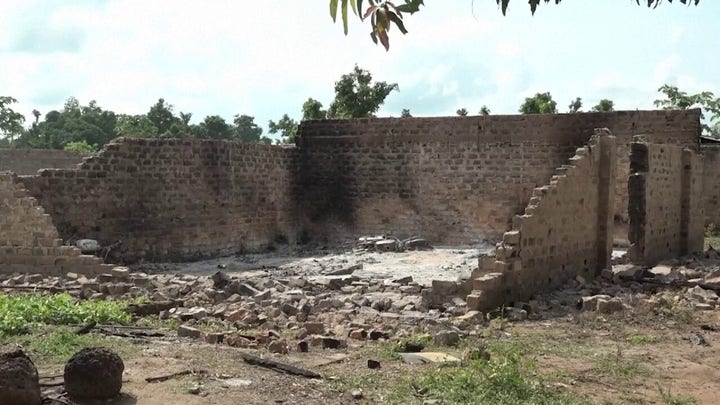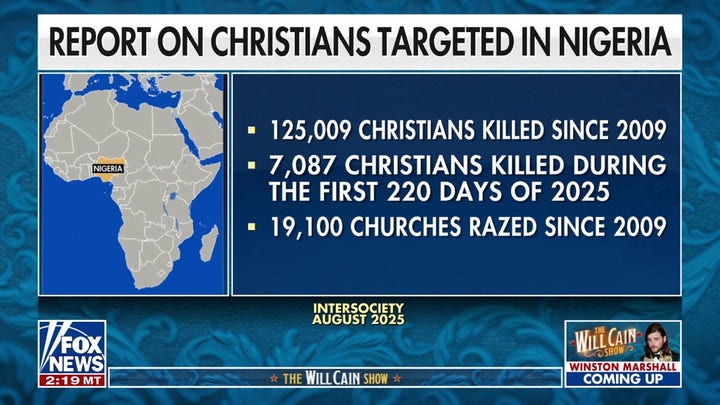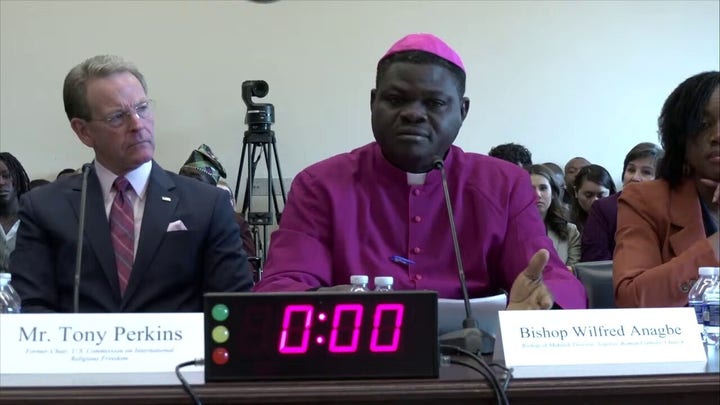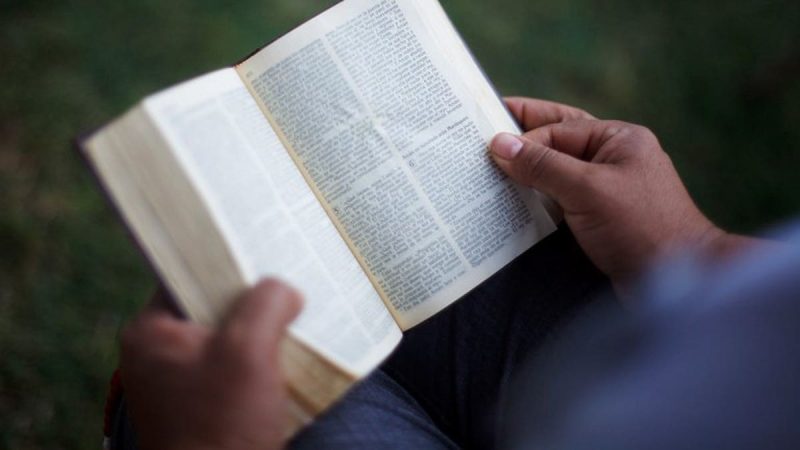
Two years ago, I was kidnapped by Boko Haram. They held me captive, and every day I prayed that I would see my family again. By a miracle of God, I was able to escape.
Sadly, most Christians who are captured by this terrible organization never live to tell their stories. And unless the West intervenes, kidnappings like mine — as well as killings — will only increase in my country, spread across the African continent and threaten the rest of the world.
Today, as I travel throughout Nigeria providing relief as part of my work with iReach Global, I see that the violence has only grown—spreading like wildfire across the middle of my country, leaving behind a trail of ashes, mass graves and shattered lives.
This year has brought wave after wave of coordinated attacks in Central Nigeria. More than 7,000 Christians have been killed. Entire villages — most of them Christian farming communities — were razed. Families now live in makeshift camps, traumatized and uncertain if they’ll ever return home.
In early April, multiple coordinated assaults in the Bokkos area claimed hundreds of lives within a week. One community alone reported 52 deaths in a single attack, with thousands forced to flee.
Later that month, in an area called Bassa, at least 51 people were slaughtered in a pre-dawn raid. The attackers came silently, setting homes ablaze and killing entire families as they slept. In Riyom, ambushes and targeted killings continued for months afterward. In one case, a bus full of passengers was stopped and attacked — 12 people killed on the spot.
These are not random acts of violence. They are systematic, coordinated attempts to erase Christian communities from the region.
As someone who has walked through burned villages and prayed with survivors, I can tell you the reality is even worse than the statistics suggest. I’ve seen mothers weeping beside mass graves. The smell of smoke from the smoldering remains of churches and schools still clings to my clothes. I’ve also spoken with children who no longer sleep through the night because they fear the next attack will come for them.
This is not simply a matter of ‘clashes’ between farmers and herders, as government officials sometimes claim. It is a campaign of terror. It’s ethnic and religious cleansing disguised as conflict over land.
And yet, the Nigerian government continues to downplay the crisis — failing to provide protection, food or medical care to the displaced. Some local leaders even warn communities not to speak to the media. But silence will not save us.
I’ve seen mothers weeping beside mass graves. The smell of smoke from the smoldering remains of churches and schools still clings to my clothes.
The Nigerian government bears the primary responsibility to protect its people. That must begin with immediate and adequately resourced security deployments to protect vulnerable communities — especially during planting and harvest seasons when farmers are most exposed. Humanitarian corridors must be opened to deliver food and aid to thousands now living in desperate conditions.
Independent investigations are also essential. Impunity is the oxygen that fuels these killings. Perpetrators must be identified and prosecuted—no matter their political connections or tribal affiliations.
At the same time, Nigeria’s political class must stop turning our suffering into campaign slogans. I’ve heard politicians invoke the blood of victims as talking points during election campaigns while refusing to act. This must end. The lives of our people are not bargaining chips.
The United States and other Western nations cannot look away. They have both the moral obligation and the diplomatic tools to press Nigeria toward real accountability. I believe the U.S. State Department must reinstate Nigeria’s designation as a Country of Particular Concern for egregious violations of religious freedom. This would send a clear signal to my government that the world is watching, and the killing of Christians in Nigeria will not be ignored.
In addition, international partners should expand support for independent investigations and humanitarian assistance. I have visited many of these camps; the needs are immense. In some camps, families survive on one meal a day, drinking from muddy puddles, with no one to treat their wounds. Children go months without schooling. The international community can help fund the rebuilding of homes and provide psychosocial support for those who have endured unspeakable loss.
The victims of these attacks are not soldiers or combatants. They are farmers, families, children and elders. They want nothing more than to live in peace, tend their fields and worship freely. Yet they have become targets of a campaign of hate.
If urgent action is not taken, we risk watching entire Christian communities vanish from Nigeria’s Middle Belt. Not only that, but the reign of terror will continue to grow across the Sahel region of Africa and could ultimately threaten global security.
And the silence of the world will be remembered as complicity.
As someone who has survived the terror of Boko Haram and now witnesses this unfolding genocide, I plead with the global community: Do not look away. The suffering here is real, and it is growing.
Nigeria is bleeding. But it does not have to be this way. With courage and help from the international community, we can still stop the slaughter and begin the long work of rebuilding.

